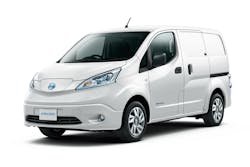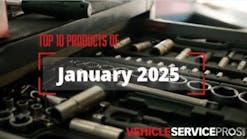Portland now testing ground for Nissan e-NV200 electric commercial vehicle
Portland, already a top breeding ground for electric vehicle (EV) sales, is now the proving ground for Nissan’s prototype electric commercial vehicle – the Nissan e-NV200.
“Oregon has been a top five market for Nissan LEAF sales in the U.S. due to proactive policies at the state level to encourage EV adoption, as well as robust charging infrastructure championed by the state and others like PGE”
Nissan is working in collaboration with Portland General Electric (PGE) on a six-week trial to help determine the viability of an electric commercial vehicle in the U.S. market. PGE has assigned the e-NV200 into its fleet of vehicles with an underground crew, replacing a larger, diesel-powered van.
“Oregon has been a top five market for Nissan LEAF sales in the U.S. due to proactive policies at the state level to encourage EV adoption, as well as robust charging infrastructure championed by the state and others like PGE,” said Toby Perry, Nissan’s director of EV Marketing in the U.S. “If we determine that e-NV200 fits into the U.S. commercial vehicle market, we expect that Portland would be a leading driver for sales as well.”
This year, Nissan is deploying two e-NV200 prototypes with companies such as PGE and FedEx in top U.S. EV markets including California, Georgia, Oregon and Washington, D.C. to determine how businesses could use an all-electric cargo van to meet their day-to-day requirements. Companies replacing gas-powered vehicles with electric vehicles like e-NV200 could enjoy a substantial reduction in operating costs and vehicle maintenance, while lowering their vehicle emissions footprint, just like owners of the all-electric Nissan LEAF.
“EVs have already demonstrated their value as a sustainable choice for personal use, and fleet electrification is the logical next step,” said Charlie Allcock, director, business development at PGE. “We’re excited to see firsthand the impact the e-NV200 can have on our own fleet and to help other companies understand the potential it represents for them.”
Nissan e-NV200 goes on sale this summer in Europe and later this year in Japan.
Nissan's Second Global All-Electric Vehicle
Following Nissan LEAF, e-NV200 is the second EV that Nissan is offering in certain global markets. The all-electric compact cargo vehicle strengthens Nissan's leadership in zero emission mobility. The 100 percent electric model offers the same versatility, functionality and roominess as its gasoline-powered sibling. The e-NV200 delivers unique, emission-free and quiet performance thanks to a powertrain based on Nissan LEAF and the same advanced lithium-ion battery. The e-NV200 can be charged up to 80 percent of its full capacity in less than 30 minutes when equipped with a quick charge port and using a fast charger.
With front-wheel drive, the e-NV200 provides rapid and smooth acceleration and excellent handling with a high degree of maneuverability. The electric vehicle delivers immediate torque, which benefits acceleration with a heavy payload from a dead stop. The e-NV200 offers the low cost of ownership that EVs such as LEAF boast—based on fewer maintenance requirements and the reduced cost of charging versus fueling. The smart positioning of the battery ensures a larger cargo area, and the vehicle maintains a low load floor, key considerations for light commercial vehicles.
Nissan LEAF in Portland
Sales of Nissan’s all-electric LEAF are poised to accelerate further in Portland. Portland is one of the first markets to receive Nissan’s “No Charge to Charge” promotion, which provides two years of no-cost public charging to customers who purchase or lease a new Nissan LEAF beginning April 1, 2014.
With nearly 120,000 global sales since launch, Nissan LEAF is the world's top-selling electric vehicle. LEAF seats up to five passengers and boasts an estimated driving range on a fully-charged battery of 84 miles and MPGe ratings of 126 city, 101 highway and 114 combined. With a starting price of less than $30,000, LEAF is competitively priced with similar gas-powered cars after applicable tax credits, while providing the benefits of lower running costs and less scheduled maintenance.
For more information, visit NissanUSA.com/LEAF.


